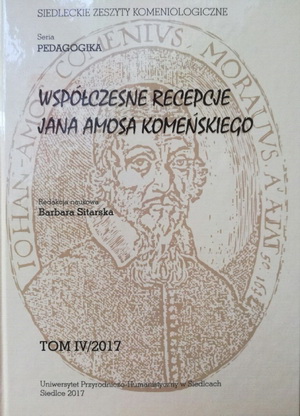Development of anthropological accents in Comenius’ early work and its implications for his philosophy of education
Abstrakt
This brief paper investigates the anthropological aspects in Jan Amos Comenius’s early works. The goal is to show the dynamics of the development in his notion of humanity. One of the sub-goals is to show that Comenius’s specific notion of resignation, which is characteristic for his post-White-mountain work, has got a particularly positive meaning, and as such lays meaningful foundation for his educational and emendation plans and efforts of the later periods. Comenius attempted to write about two hundred books on various educational, philosophical and theolog-ical subjects. Not surprisingly, his thought throughout his life showed signs of a certain dynamic. The intention of this paper is to show the development of his anthropology in the early periods of his life and work. I believe an understanding of the formative sources and incentives, which shaped his notion of humanity in his early life illuminates the overall educational and emenda-tion work of the “teacher of nations”, as Comenius is sometimes called. The paper explains how the external factors in Comenius’ life shaped the shifts in his understanding of human being, and its implications for the subsequent pedagogical and emendation projects, which proved to be so brilliant and important for the European cultural heritage.




